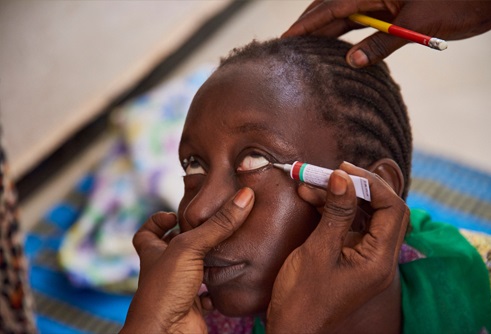
Kampala, Uganda | THE INDEPENDENT | The Vector Disease Control Division in the Health Ministry has extended the deadline for the elimination of Trachoma from the country from 2020 to 2022. This follows the failure by the Health Ministry to eliminate Trachoma from Uganda in line with the 2007 resolution, which set the 2020 deadline.
The World Health Organization (WHO) had set a global goal to eliminate all the Neglected Tropical Diseases (NTD) by 2020. However, several countries have failed to achieve the target due to the recurrence of the disease. At the WHO 11th meeting in Geneva Switzerland in 2018, the Strategic and Technical Advisory Group for Neglected Tropical Diseases recommended that WHO initiates a consultative process with the global NTD community to set new targets and milestones from 2020 to 2030.
Dr. Gilbert Baayenda, the Programs Officer for Trachoma Control/ Elimination Program in the Health Ministry told URN on Tuesday that they are making final touches to eradicate trachoma from Uganda. He says that only three out of the initial 50 districts still have the prevalence of five percent of the entire population suffering from the disease.
They are Moroto, Nebbi and Buliisa districts. Trachoma is a bacterial infection that affects the eyes and is by chlamydia trachomatis bacteria. It is contagious and spreads through contact with the eyes, eyelids or throat secretions of infected people. It can also be passed on by handling infected items such as handkerchiefs and towels.
So far the SAFE (Surgery, Antibiotics, Facial cleanliness and Environmental Improvement) strategy has been adopted to combat the infection. Dr. Gabriel Matwale, the Acting Assistant Commissioner for Neglected Tropical Diseases, says that the affected five percent in the affected districts has reacted positively to Surgery and Antibiotics.
He however, says they are still struggling on the components of Facial Cleanliness and Environmental Improvements. This he says is the reason that the ministry has extended the deadline for two more years to allow the adoption of the F and E components.
While the SAFE strategy is slowly being adopted, Dr. Matwale says that the ministry is also employing the WASH (Water, Sanitation and Hygiene) strategy to help the people in affected areas to cope up with Facial cleanliness and Environmental Improvement.
******
URN
 The Independent Uganda: You get the Truth we Pay the Price
The Independent Uganda: You get the Truth we Pay the Price


